Members
Members of the Fisheries Expert Group (FEG)
The IUCN Fisheries Expert Group consists of a limited number of senior fisheries experts from around the world. FEG Members are selected by its Bureau on the basis of expertise in the following disciplines:
- Bio-ecological, technological and socio-economic aspects of fisheries and aquatic ecosystems;
- Implementation of the Ecosystem Approach to Fisheries (EAF);
- Fishing operations.
FEG draws its expertise widely from fisheries and marine ecosystem experts in public service, academia, the private sector (including the industry itself), and NGOs.
The Experts participate in their individual capacities, independently of any institutional affiliations.
FEG Bureau
Chair: Mark Dickey-Collas
Contact: ebcd.info@ebcd.org
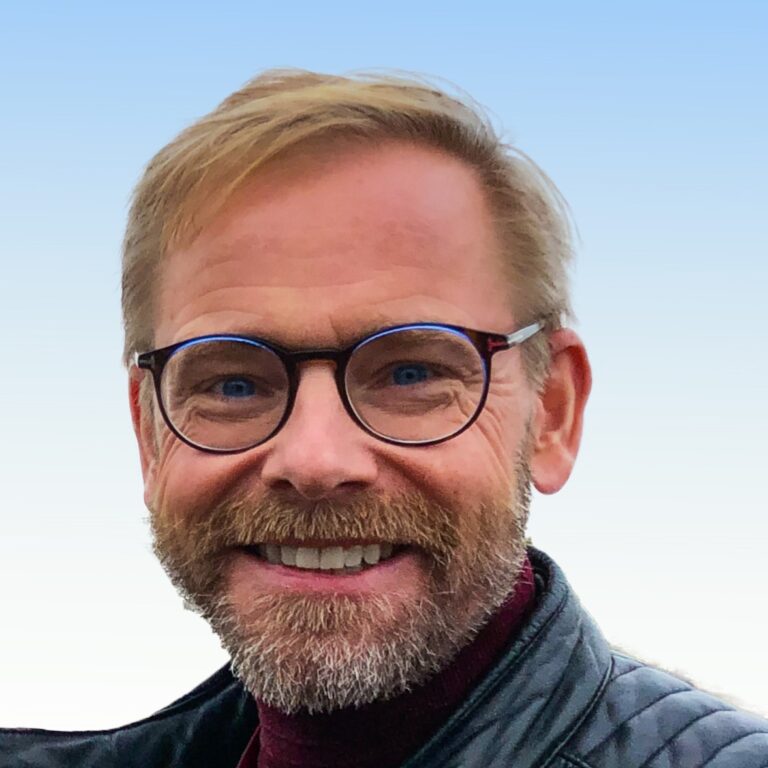
Mark is an experienced marine scientist, operating independently as DickeyCollas Marine; with expertise in the provision of scientific advice to governments and intergovernmental organisations for marine conservation, fisheries, biodiversity and ecosystem-based management. DickeyCollas Marine specialises in knowledge for policy development, and operational decision-making, in facilitation, and in the strategic development of marine science programmes around the world. DickeyCollas Marine client base includes GFCM, EBCD, various European marine Advisory Councils, ICES, and the Center for Independent Experts in the USA. Mark is developing further experience in the realm of the implementation of the Global Biodiversity Framework, science for marine policy in the Mediterranean Sea and the international BBNJ treaty.
Mark has over 30 years’ experience, with a decade in each of Northern Ireland, the Netherlands, and ICES HQ, Denmark. Initially he specialised in pelagic fish and fisheries, and moved into the realm of EBM, and then became Chair of the ICES Advisory Committee. In that role, Mark oversaw the production and delivery of >250 pieces of annual advice to governments. His scientific experience spreads across population dynamics, ecosystem modelling, conservation, stakeholder engagement and the policy/science interface. His ORCiD can be consulted here.
Mark is an adjunct professor at DTU-Aqua, a member of the IUCN Fisheries Expert Group, a council member of the Marine Biological Association of the UK and a member of the Defra (UK) biodiversity expert committee. He chaired the FAO expert panel on CITES listing of aquatic species and is a former member of the IMBeR Science Steering Committee. He contributes to the UN Endorsed Ocean Decade Programme FishSCORE. Mark values diversity and equity in marine science.
Vice-Chair: Anthony (Tony) Charles
Contact: tony.charles@smu.ca

Dr. Anthony (Tony) Charles has been at Saint Mary’s University for over 25 years, holding a dual appointment as Professor of Management Science within the Sobey School of Business, and professor of Environmental Science in the Faculty of Science.
Internationally, he is a Pew Fellow in Marine Conservation, Senior Research Fellow of the International Ocean Institute, recipient of the Gulf of Maine Visionary Award, Past-President of the International Institute of Fisheries Economics and Trade (IIFET) and of the Resource Modeling Association (RMA), and currently lead researcher of the Community Conservation Research Network.
Within Canada, Dr. Charles is formerly a research scientist with Fisheries and Oceans Canada (DFO), and was recently both a member of the DFO Science Advisory Council and Founding Director of Canada’s Ocean Management Research Network. Dr. Charles is an inherently interdisciplinary researcher, building on original training in mathematics, adding elements of ecosystem dynamics, economics and social sciences, and now focusing on governance, management and economics of fisheries and marine social-ecological systems.
His contributions are particularly in four key areas: management for sustainability and resilience of fisheries and coasts; uncertainty, climate change and impacts in fisheries and marine systems; human dimensions of the ecosystem approach; and the role of participatory and community-based marine governance. Dr. Charles is the author or co-author of several books. He collaborates regularly with the OECD and the UN Food and Agriculture Organization, and has worked in many regions of the world, notably North America, Latin America and Asia. He currently serves as Vice-Chair of the IUCN-CEM Fisheries Expert Group.
Coordinator: Despina Symons Pirovolidou
Contact: despina.symons@ebcd.org
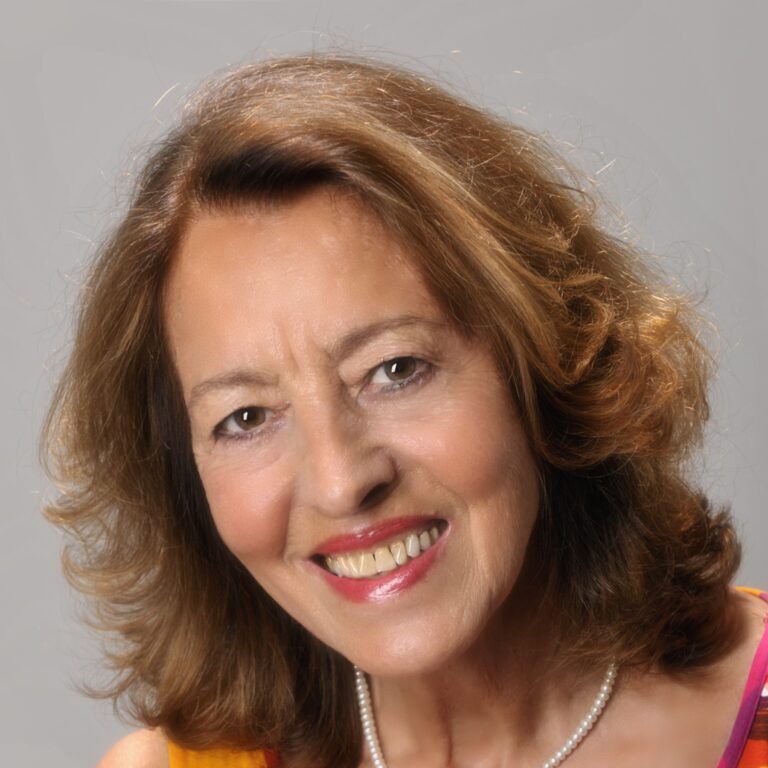
Despina Symons, of Greek origin, has been Director and founding Member of the European Bureau for Conservation and Development (EBCD) since its establishment in 1989. At European level, Despina has been linking the conservation and the scientific communities as well as the private sector to the EU policy makers providing them with expert strategic advice for over twenty years.
Furthermore, she has been working closely with several UN bodies such as FAO, CITES, CBD and others. Despina has been active in IUCN and more particularly in its Marine Programme and the European one.
She is Member of the Executive Committee of the IUCN/SSC European Sustainable Use Specialist Group and Coordinator of its Fisheries Working Group. She is also the founding member and coordinator of the recently established Fisheries Expert Group (FEG) of the IUCN Commission of Ecosystem Management (CEM).
Prior to joining EBCD, Despina worked on fisheries related issues in Madrid (Spain) where she represented the Spanish coastal fishermen to the EU and before that she worked in Canada as a free lance translator for the Secretary of State of Canada.
Other FEG members
Ernesto Penas Lado
Contact: ernestopenas@gmail.com
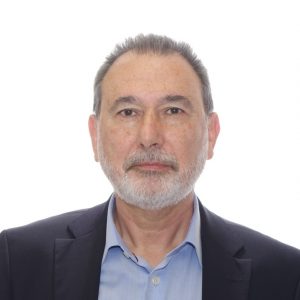
Ernesto Penas Lado is a marine biologist by training and worked on marine research for 10 years. He was an official of the European Commission (DG MARE) where he worked for 30 years on the development of the EU’s Common Fisheries Policy (CFP).
Ernesto retired from the Commission as Director in December 2018. Currently he works as an advisor to a number of institutions, providing advice related to the conservation and management of ocean resources. He is also the Chair of the International Commission for the Conservation of Atlantic Tunas (ICCAT). Furthermore, between 2023 and 2025, Ernesto served as Chair to the IUCN-CEM Fisheries Expert Group (FEG).
Serge M. Garcia
Contact: grcsgm@gmail.com
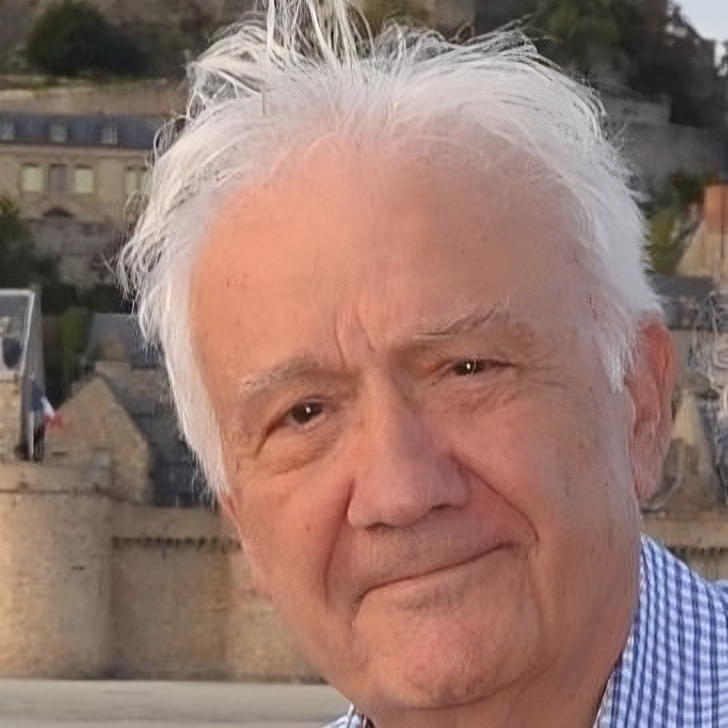
Dr Serge Michel Garcia is French, born in Algeria in 1945. He holds a D.Sc. (Biological Oceanography) from the University of Marseille (France, 1976) and initially specialized in shrimp population dynamics and tropical fisheries management.
He worked in West Africa from 1968 to 1979 for the French Institute of Research for Development, IRD (formerly ORSTOM), after which he joined the FAO Fisheries Department where he was responsible for West African fisheries resources, headed the Marine Resources Service and took on the role of Director of the Fisheries and Aquaculture Management Division.
At FAO, Serge contributed, inter alia, to the conception and development of the Code of Conduct for Responsible Fisheries (CCRF) and promoted the adoption and implementation of the precautionary and the ecosystem approaches to fisheries (EAF). He initiated the development of the Fisheries Global Information System (FIGIS) and conceived and led the development of the UN Atlas of the Oceans. He retired from FAO in March 2007.
Serge has also been a member of the Scientific Steering Committee of the Census of Marine Life (CoML), the Ocean Biogeographic Information System (OBIS) board, and the Scientific Committee of the French Institute for Research and Exploitation of the Sea (IFREMER). He is still a member of the board of the European Bureau for Conservation and Development (EBCD), and co-founded and served as first chair of the Fisheries Expert Group of the IUCN Commission on Ecosystem Management.
James (Jake) Rice
Contact: ebcd.info@ebcd.org
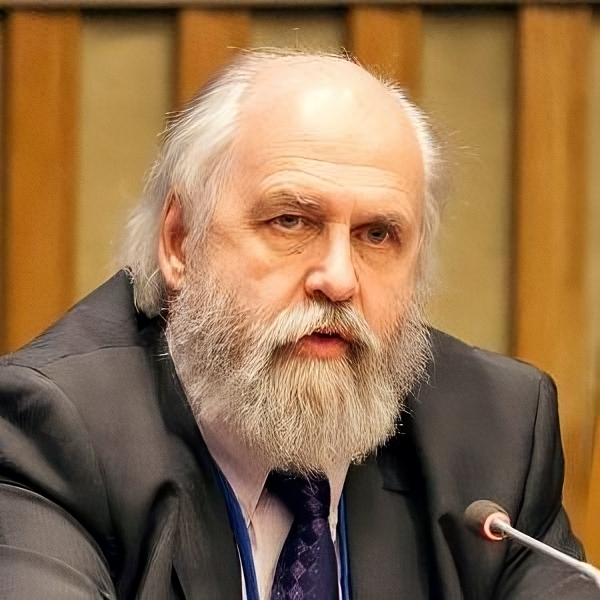
Dr. Jake Rice is National Senior Advisor – Ecosystem Sciences, for the Department of Fisheries and Oceans, Canada. He spent 11 years as Director of Peer Review and Science Advice for DFO. Prior to that he had senior positions in Pacific Region and Newfoundland Region. He has held faculty positions at Memorial University, Arizona State University, and University of Copenhagen.
He received his B Sc. from Cornell (1970 – Conservation) and Ph. D. from University of Toronto (1974 – Ornithology). Jake has more than 200 publications in the scientific and technical literature, covering many aspects of what is now considered the ecosystem approach to integrated management.
This work has included investigation of objective methods for choosing informative ecosystem indicators, setting ecologically based reference levels on indicators, and strategies for conducting ecosystem assessments that are integrated across ecosystem processes, industry sectors, and ecological, social, and economic aspects of policy and management. His primary duties now are as science advisor to the DFO International Policy group, and with substantial involvement in negotiations of international marine policy at UN Working Groups, FAO, CBD, and related bodies.
He is a member of the Group of Experts for the UN Regular Process for Global Marine Assessments, and is one of the Lead Authors for a chapter on Drivers, Trends and Mitigation, for the next IPCC Assessment Report. He has chaired more than a dozen major DFO science planning or review committees, served on the NOAA Science Advisory Board and the External Ecosystem Review Team, participated in and often chaired expert groups for ICES, PICES, FAO, IOC, CBD, MSC, the UN Group of Experts for the Assessment of Assessments, the UN Regular Process for Global Marine Assessments, and formerly was Vice-Chair of the IUCN-CEM Fisheries Expert Group.
Jeppe Kolding
Contact: jeppe.kolding@uib.no
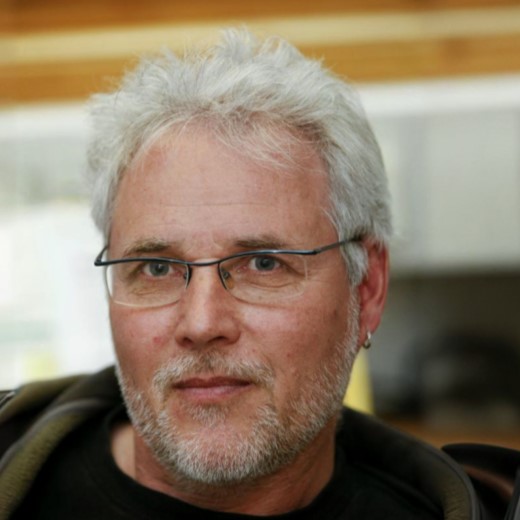
Born 1955 in Copenhagen, Denmark, Professor Jeppe Kolding holds a D.Sc. (Fisheries) from the University of Bergen (1994), specializing on small-scale fisheries in the Global South.
Employed by Department of Biological Sciences of the University of Bergen, Norway from 1987-2000 and from 2002 to present, where he has taught and supervised more than 100 students in fisheries science from 39 countries.
In 2000-2001 he was employed by the Institute of Marine Research, Centre for Development Cooperation in Fisheries where he worked with the R/V Dr. Fridtjof Nansen programme.
He has lived and worked several years in various African countries and has experience from shorter term engagements in more than 25 developing countries all over the world. Primary research interest is fish stock assessment, ecology, small fish for food security, and management of small-scale tropical fisheries, with particular experience from inland fisheries.
His works and publications can be found here.
Daniela Diz
Contact: d.diz@hw.ac.uk
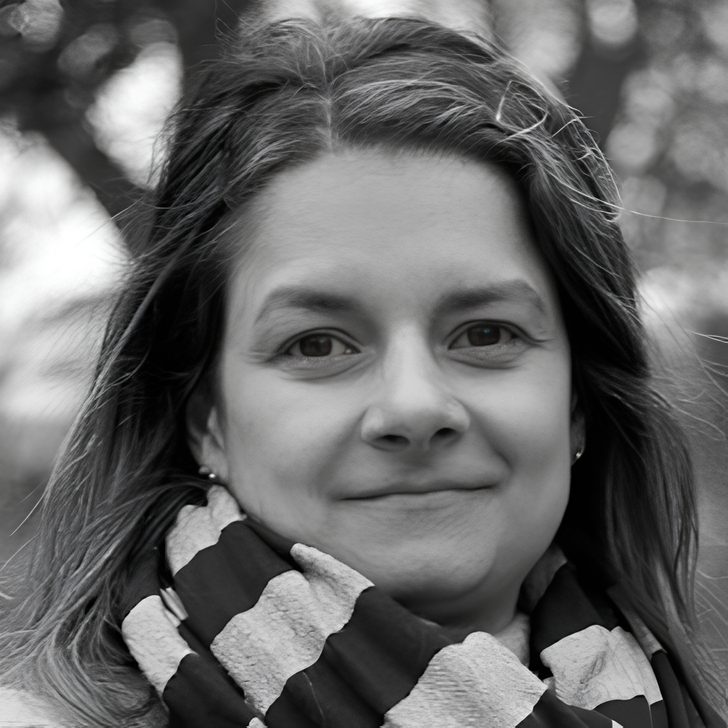
Michel J. Kaiser
Contact: m.kaiser@hw.ac.uk
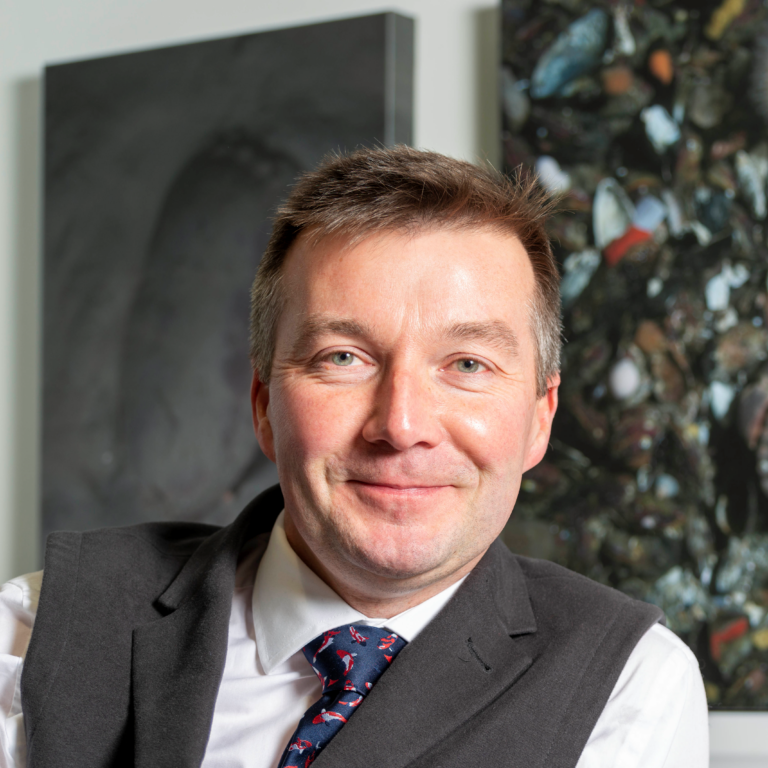
Michel Kaiser is Professor of Fisheries Conservation at the Lyell Centre, Heriot-Watt University and was the University’s Chief Scientist until 2022. Previously, he was the Science & Standards Director at the Marine Stewardship Council and was Professor of Marine Conservation at Bangor University for 20 years. Here he examined social and economic consequences related to different fishing activity management approaches. Michel also worked at the Centre for Environment, Fisheries and Aquaculture Science (CEFAS) where he led research on the effects of human activities (fishing and aquaculture) on the marine environment.
His current research focuses on the sustainable use of marine resources and minimization of impacts on the marine environment. He works at the scientific interface between fisheries and conservation and collaborates with and advises global seafood industries, retailers, NGOs, and Government agencies. He is a trustee of Fishing Into The Future, and Scottish Fisheries Museum and is a member of the BBC Rural Affairs Committee.
Michel was awarded the Fisheries Society of the British Isles (FSBI) medal in 2004 for his contribution to fish and fisheries research. He was also awarded a Personal Chair promotion in Marine Conservation Ecology in 2006. In 2012, he co-convened the 6th World Fisheries Congress. Michel holds a D.Sc. (Marine Biology) from the University of Liverpool and a Ph.D. (Marine Biology) from Bangor University. He has authored over 180 peer reviewed publications and has written/edited 5 books.
Jason S. Link
Contact: jason.link@noaa.gov
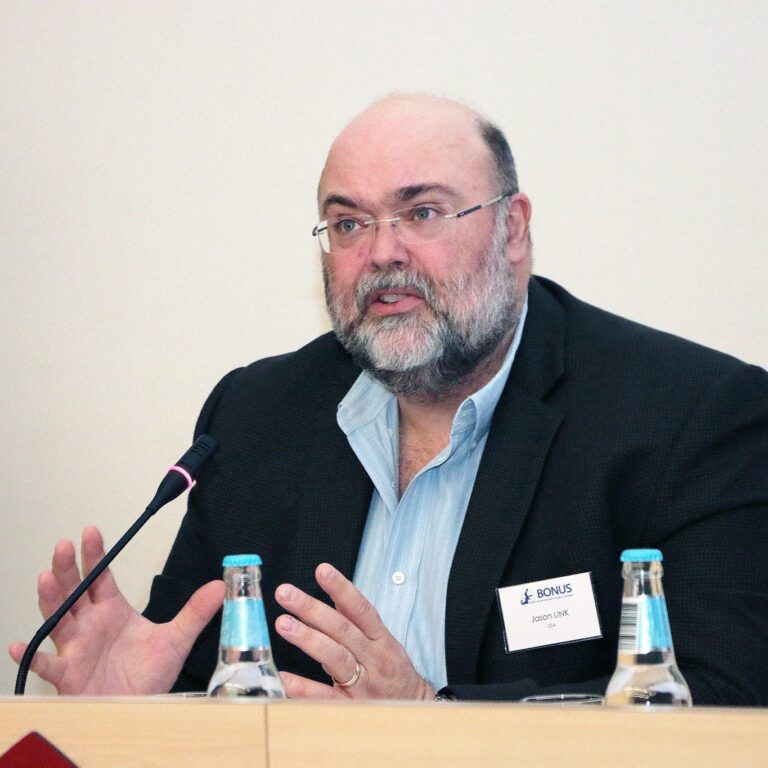
Dr. Jason S. Link is the Senior Scientist (ST) for Ecosystem Management with the National Oceanic and Atmospheric Administration’s (NOAA) National Marine Fisheries Service (NMFS). In this role, Dr. Link leads approaches and models to support development of ecosystem-based management plans and activities throughout the agency, serving as the agency’s senior-most authority on ecosystem science.
Dr. Link has written several books and book chapters on the topic of Ecosystem-based Fisheries Management, has written over 200 peer-reviewed publications, over 300 reports (~100 citable), has over 325 published abstracts, and has convened over 10 major international symposia and summits on marine ecosystem management, climate change impacts on marine ecosystems, and modeling-related topics.
Dr. Link has been a champion of ecosystem science and ecosystem-based management, both as a discipline and as a practice, for resource management agencies in the U.S. and around the world, sitting on several international advisory boards and the editorial board of an international marine science journal.
Dr. Link holds an adjunct faculty position at the School for Marine Science and Technology at the University of Massachusetts, is a fellow of the American Institute of Fishery Research Biologists, holds an executive leadership certificate from Harvard, and has received a Department of Commerce Bronze medal and the Fisheries Society of the British Isles Medal for significant advances in fisheries science.
Hugh Govan
Contact: hgovan@gmail.com
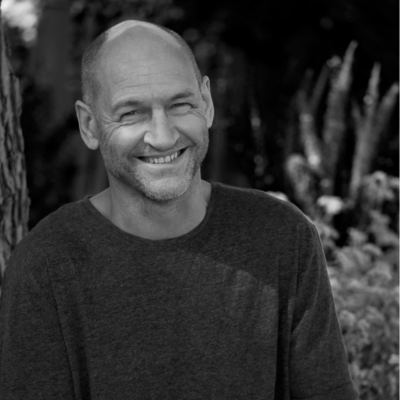
Hugh is an Adjunct Senior Fellow at USP’s School of Government, Development & International Affairs (SGDIA) and has been an adviser to the Locally Managed Marine Area Network (LMMA) in Asia and the Pacific since its inception in 2000. He has worked in the Pacific Islands as well as Central and South America and Europe where his work has spanned human rights, traditional medicine, cultural survival, sustainable forest livelihoods, renewable energy and aquaculture.
His work with the LMMA Network has focused on developing community-driven approaches to resource management in the Pacific and from there into a global phenomenon, increasingly paying attention to factors such as rights, legislation and institutional support that might best ensure local fishers are empowered to sustain their livelihoods in coastal areas.
His freelance work for national governments, regional and international agencies covers policy as well as practice from the community and sub-national level, to national and regional levels in the Island Pacific. He is the second author of the Pacific region’s overarching ocean policy, the Framework for a Pacific Oceanscape, has carried out reviews (including institutional capacity for resource management, the links between policy and staff duties at the sub-national level and agencies’ staffing and budgets) for the co-drafting of regional and some national Pacific Island policies on coastal fisheries. Current interests include improving local returns from high value fisheries (e.g. sea cucumber), ocean governance and public participation and the politics of international interest in the Pacific Islands ocean domain.
Hugh is a board member on the Fisheries Transparency Initiative (FiTI), Amazon Conservation Team (ACT Europe), Fiji Environmental Law Association, World Commission on Protected Areas (IUCN WCPA), Commission on Environmental Economic and Social Policy (IUCN CEESP) and Editorial Board Member, Journal of Marine Policy.
Mary Gasalla
Contact: mgasalla@usp.br
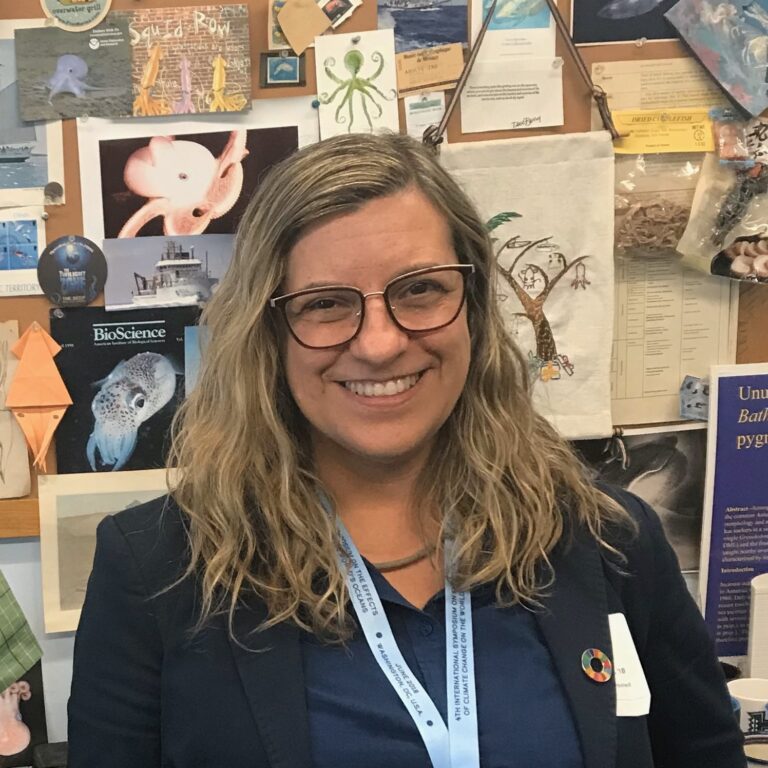
Professor Mary Gasalla (PhD and MSc in Oceanography) is affiliated to the Oceanographic Institute, University of São Paulo, Brazil, where she coordinates the Fisheries Ecosystems Laboratory since 2005, collaborating in several national and international networks. Her expertise includes a broad range of fisheries topics from both natural and social sciences, climate and anthropogenic impacts on fishing communities and marine ecosystems, economics in natural resource management, ecosystem modelling, fish and cephalopods ecology and trophodynamics, human ecology/ILK, grassroots engagement, and fisheries assessment and management.
She has been serving in international Scientific Steering Committees and PI consortia, mostly funded by research agencies. In recent years, she has focused her research on climate change issues and strategic assessments, including both modelling and social vulnerability analysis.
She is currently also serving in IPBES (Intergovernmental Science-Policy Platform on Biodiversity and Ecosystem Services), Task-Force on Scenarios and Models, also Coordinating Lead Author (CLA) in the Thematic Assessment on the Sustainable Use of Wild Species, and co-author of the recently launched IPBES-IPCC report on biodiversity and climate change.
Elie Jarmache
Contact: ebcd.info@ebcd.org
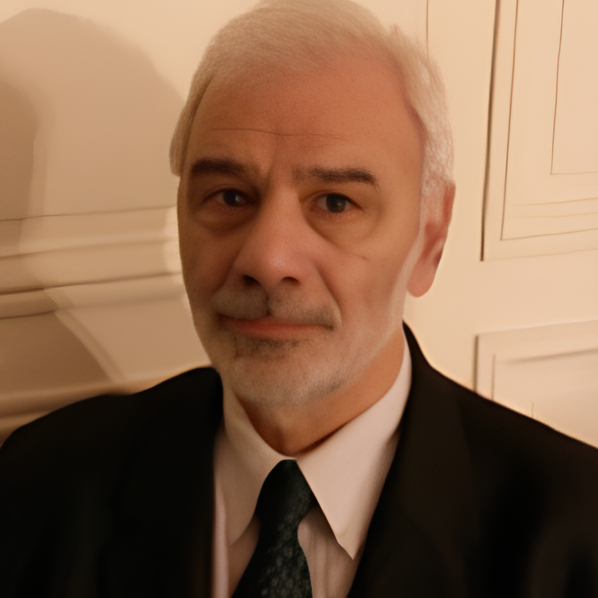
Currently retired, Elie Jarmache was Adviser on Governance issues & Law of the sea at IFREMER (2018/2019). He has been serving for 13 years at the French Secretariat General of the sea, Office of the PM (2005-2018) and was Head of the French Team to the CLCS-UN (Continental Shelf extension). Furthermore, he was Member of the Legal and Technical Commission (LTC) of the International Seabed Authority (ISA) till December 2022, Member of the Scientific Council of Law of the Sea Institute of Monaco as well as Chair of the Advisory Body of Experts on the Law of the sea, IOC/UNESCO (2001-2009).
Elie has authored several publications on different issues, including the French Practice of the LOS, the Marine Scientific Research (MSR) regime, the Commission on the Limits of the Continental Shelf (CLCS), the Area and the Common Heritage of Mankind (CHM), the functioning of the International Seabed Authority (ISA). He also was a Lecturer at University of Paris-Nanterre (‘governance of oceans’) and at French political science institute of Paris (‘constitutional law).
Silvia Salas
Contact: ssalas@cinvestav.mx
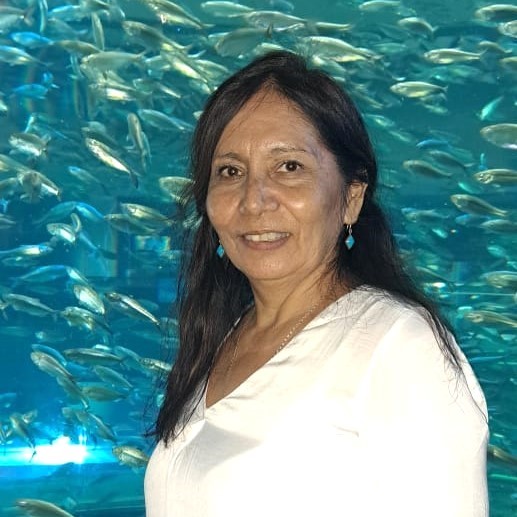
Dr Silvia Salas is a professor at CINVESTAV, where she oversees the fisheries laboratory at the Marine Resources Department. She has collaborated with local and international NGOs (COBI, EDF, CeDePesca), and is currently a member of the scientific advisory committee of Oceana.
Silvia has been involved in several multidisciplinary projects around the following themes: bioeconomic assessments and management of small-scale fisheries (SSF), evaluations of the impacts of anthropogenic activities in fisheries and fishing communities, risk and vulnerability assessments in fisheries, analyses of fishing strategies of SSF, and value chain and fisheries viability analyses. She has participated in the development of management plans for several species and has developed and led different projects for fishing cooperatives in Mexico.
Silvia has also participated as an expert in several meetings organized by FAO, WWF, WTO, and OECD. Currently, she is a member of different networks including TBTI, RICOMAR, NAAFE, and IIFET. Within the NAAFE, Silvia is a board member in the representation of Mexico. She recently finished her period as a board member of IIFET as a representative of Latin America.
Merle Sowman
Contact: merle.sowman@uct.ac.za
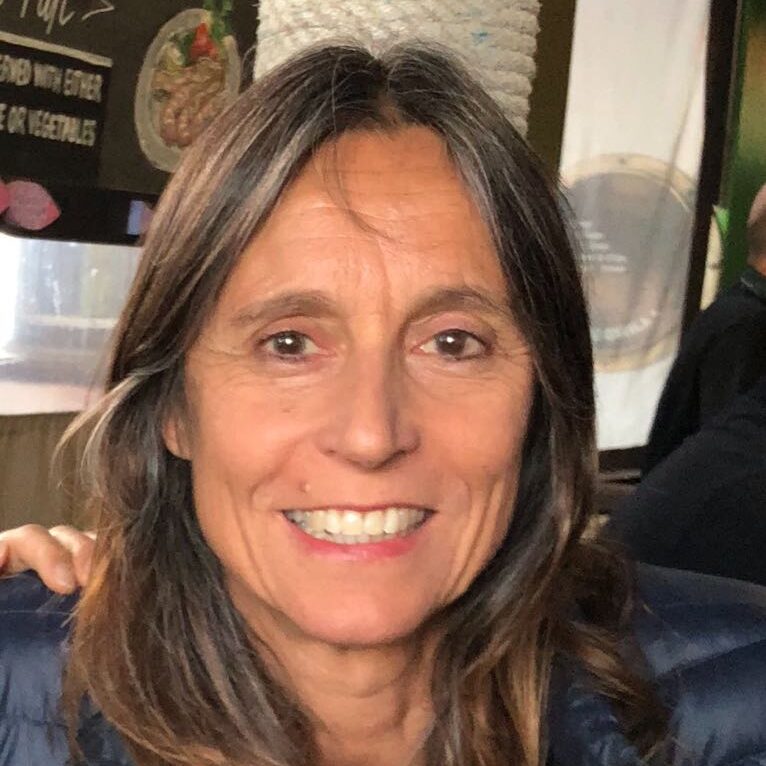
Professor Merle Sowman is an academic in the Department of Environmental and Geographical Sciences at the University of Cape Town (UCT), South Africa. Her main area of expertise is in the field of environmental governance and management with a particular focus on coastal and marine socio-ecological systems. Key areas of research include policy analysis in relation to coastal and small-scale fisheries governance, balancing sustainability and social justice imperatives in marine conservation, and more recently, community-based adaptation planning in relation to climate change.
Over the years, Merle has been involved in a diverse range of interdisciplinary and collaborative research projects in various contexts but mainly southern Africa. Some examples include exploring models of governance across a range of natural resource sectors in sub-Saharan Africa, developing technical guidelines for integrating human dimensions into Marine Protected Area planning and management, and developing and applying a community-based vulnerability assessment tool to support adaptation planning in the context of climate change in the BCLME region. She has also designed, facilitated and lectured on several short courses on various topics ranging from Tools for Environmental Management, Integrated Coastal Management and Implementation of the Voluntary Guidelines for Small-scale Fisheries. She was a member of the National Task Team that developed a new small-scale fisheries policy for South Africa and has served on a number of international committees and expert consultations for UN Food and Agricultural Organization. She is an Academy member of Future Earth Coast.
Joji Morishita
Contact: ebcd.info@ebcd.org
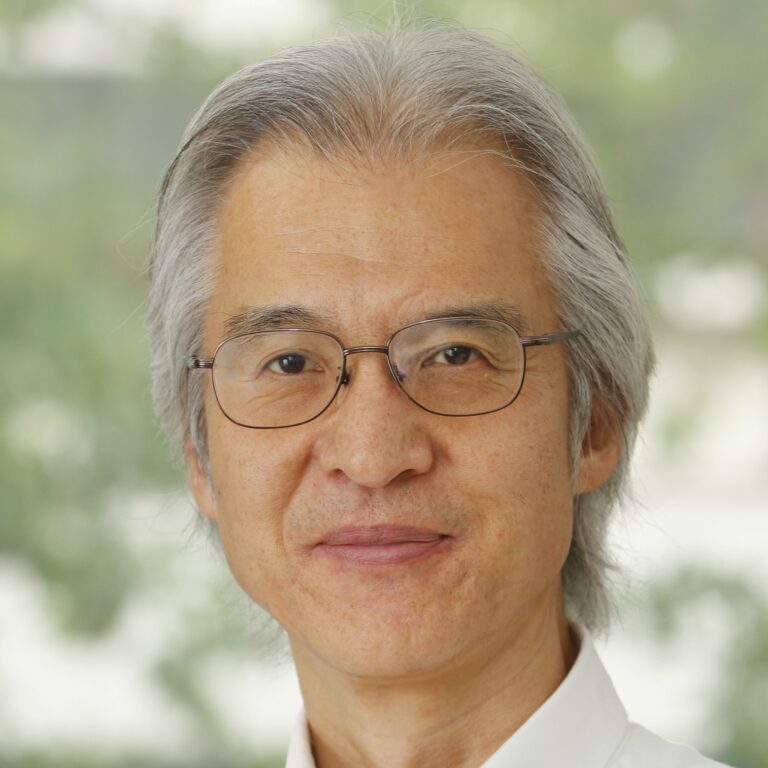
Dr Joji Morishita retired from a professorship at the Department of Marine Policy and Culture, Tokyo University of Marine Science and Technology in March 2023 and currently serves as an adviser to Japan’s Minister of Agriculture, Forestry and Fisheries on International Fisheries Affairs. He has been involved in international negotiations regarding oceans and fisheries since 1982 as a representative of the Government of Japan, covering bilateral fisheries access and trade negotiations with several countries.
This work entailed covering meetings of RFMO/As (including CCAMLR, CCSBT, NPFC, and WCPFC), multilateral fisheries conferences (including FAO COFI, APEC Fisheries WG, and their expert meetings), CBD, CITES, and UN General Assembly Informal Consultations on the sustainable fisheries resolution, the Meeting on High Seas Fisheries in the Central Arctic Ocean, Rio plus 20, IUCN Congress, and other international ocean and environmental meetings.
Joji was Japan’s Commissioner to the International Whaling Commission (IWC) from 2013 to 2018 and served as IWC’s Chair from 2016 to 2018. He was also the Chair of the Scientific Committee of the North Pacific Fisheries Commission (NPFC) from 2015 to 2019. He is currently Japan’s Commissioner to the Commission for the Conservation of Antarctic Marine Living Resources (CCAMLR). He holds a Ph.D. (Agriculture) from Kyoto University, a Master of Public Policy (MPP) from Harvard University, and a B.S. in Fisheries Science from Kyoto University.
Abigail Lynch
Contact: ajlynch@usgs.gov
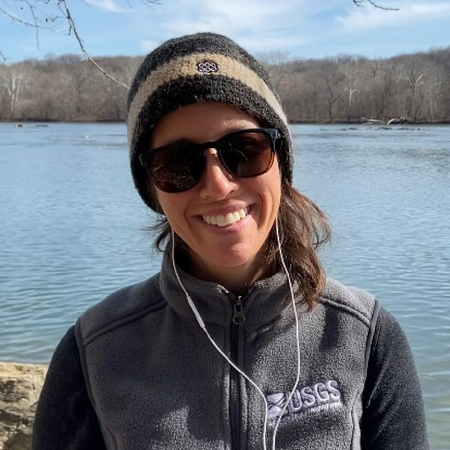
Abigail (Abby) Lynch is a Research Fish Biologist with the U.S. Geological Survey’s National Climate Adaptation Science Center. Abby conducts science and science syntheses on the impacts of global change to inland fishes at local, national, and global scales. Her work aims to inform conservation and sustainable use and to help fishers, managers, and other practitioners adapt to change.
She is the coordinator for the international ‘InFish‘ research network, Associate Editor for Fisheries Management and Ecology, and an adjunct/affiliate faculty member at Michigan State University, North Carolina State University, University of Florida, and University of Missouri. She was a fellow and author for the Intergovernmental Science-Policy Platform on Biodiversity and Ecosystem Services (IPBES) Global Assessment and is an author of the ongoing IPBES Nexus Assessment.
Abby received her Ph.D. in Fisheries and Wildlife from Michigan State University after assessing climate impacts to Great Lakes lake whitefish. She holds an M.S. in marine science from the Virginia Institute of Marine Science, College of William & Mary, a B.S. in biology and B.A. in English literature from the University of Virginia. Abby also served as a Knauss Marine Policy Fellow with the U.S. Fish & Wildlife Service’s Fisheries Program.
Devin Bartley
Contact: devinmichaelbartley@gmail.com
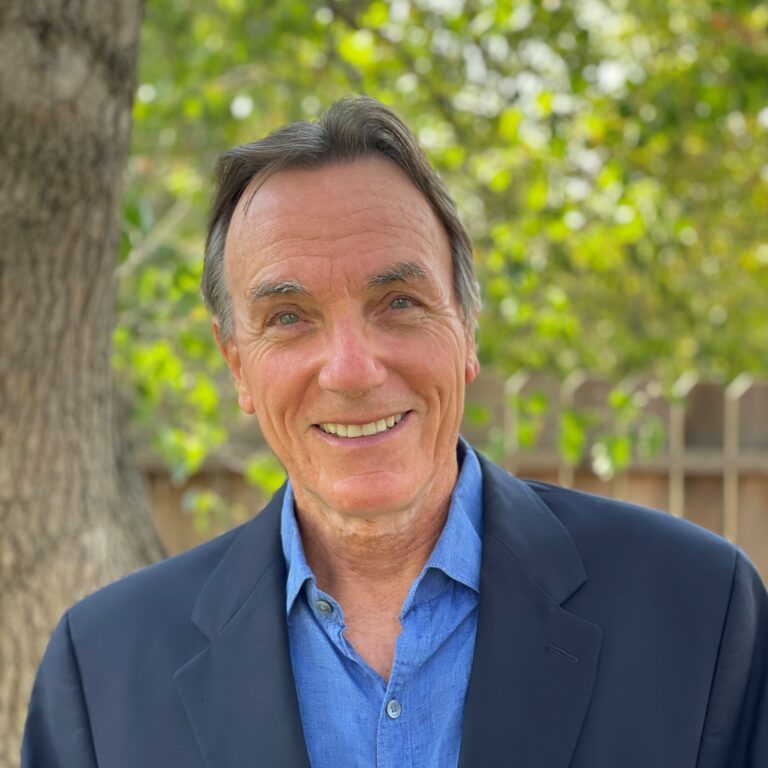
Dr Devin Bartley’s interest and specialty are in the area of genetic resource management in fisheries and aquaculture. After retiring from the Food and Agriculture Organization of the United Nations (FAO), he continues to work as a part-time consultant, as a senior research associate for an NGO in Canada (World Fisheries Trust), and as an adjunct professor at Michigan State University (MSU) in the USA.
His background includes the position of Senior Fishery Resources Officer, where he led the inland fisheries team at FAO, and appointments by the Director General of FAO and the governor of California as head of the aquaculture service and state aquaculture coordinator, respectively. With colleagues from MSU, Devin organised and convened a global conference on inland fisheries that resulted in the ‘Rome Declaration: Ten steps to responsible inland fisheries’.
Devin is currently on the editorial board of ‘Reviews in Aquaculture‘ and has produced over 100 publications, many in peer-reviewed international journals, on a range of issues relating to fisheries and aquaculture, and for diverse audiences. He strongly believes in communicating evidence-based information to policy makers, resource managers and the general public for sustainable and responsible use of aquatic resources.
Senior Advisors
The Senior Advisors are former members of FEG that have been asked by the FEG Bureau, and have kindly agreed,
to continue their collaboration with FEG after the end of their membership.
Mitsutaku Makino
Contact: mmakino@aori.u-tokyo.ac.jp
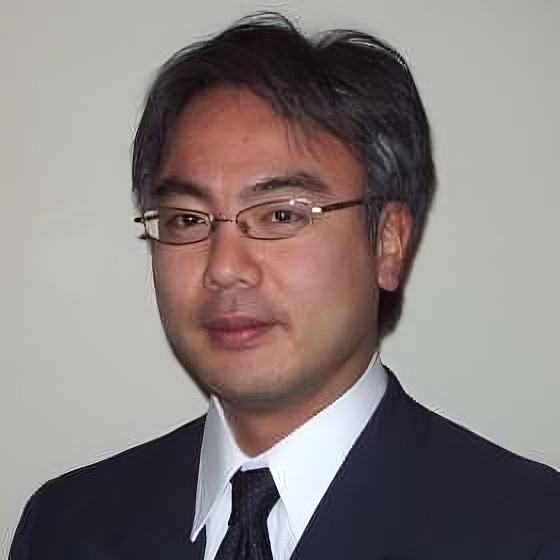
Mitsutaku Makino, M.Phil. (Cambridge), M.A. & Ph.D. (Kyoto), is a professor of the Atmosphere and Ocean Research Institute (AORI) at the University of Tokyo. Here, he specialises in ocean policy sciences, including fisheries management and ecosystem conservation.
He has participated in many international ocean science-policy activities and been Vice-Chair of the PICES Human Dimension Committee.
Mitsutaku is also contributing to Japanese domestic marine policy measures, such as the Shiretoko World Natural Heritage management, marine protected area policy, marine biodiversity conservation strategy, and integrated coastal management planning.
Annadel S. Cabanban
Contact: annadel.cabanban@yahoo.com.sg
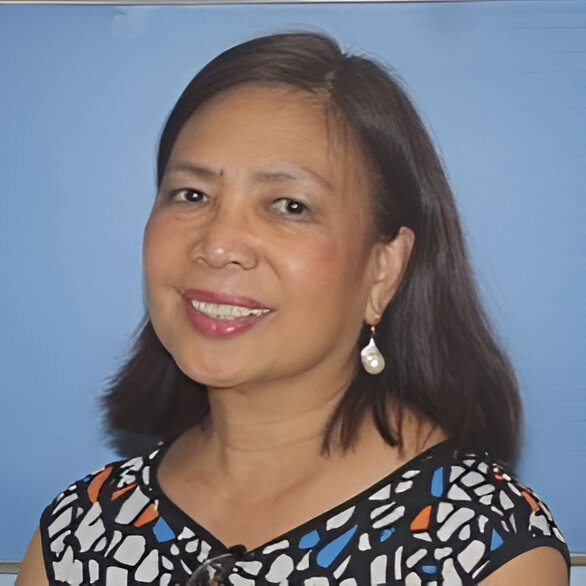
Annadel Cabanban is an ichthyologist whose professional experience in Southeast Asia spanned the academe, international civil service, and environmental advocacy. She is a member of the International Society for Reef Studies and the Survival of the Species Group – Groupers and Wrasses, IUCN.
She is the Regional vice Chair for the Commission on Ecosystem Management, IUCN. She is a graduate of Silliman University and University of the Philippines and James Cook University, Australia. Ms Cabanban has conducted basic and applied research on coral reef fishes and demersal fishes with students at Silliman University, Philippines and University Malaysia Sabah, Malaysia (1979 to 2006).
She coordinated and assisted in the implementation of two regional projects of the United Nations Environment Programme (1994-1996; 2002). She became more involved in environmental advocacy in 2006 with two international non-governmental organizations in addressing transboundary environmental issues, namely overfishing and coastal and marine habitat destruction, in the Sulu-Sulawesi Marine Ecoregion.
After working for 14 years in Malaysia and Thailand, she returned to the Philippines in 2008 to start a private enterprise in marine resources management and to continue working with Conservation International, Philippines in support of the implementation of the Sulu-Sulawesi Marine Ecoregion Conservation Plan.
Qisheng Tang
Contact: ysfri@public.qd.sd.cn
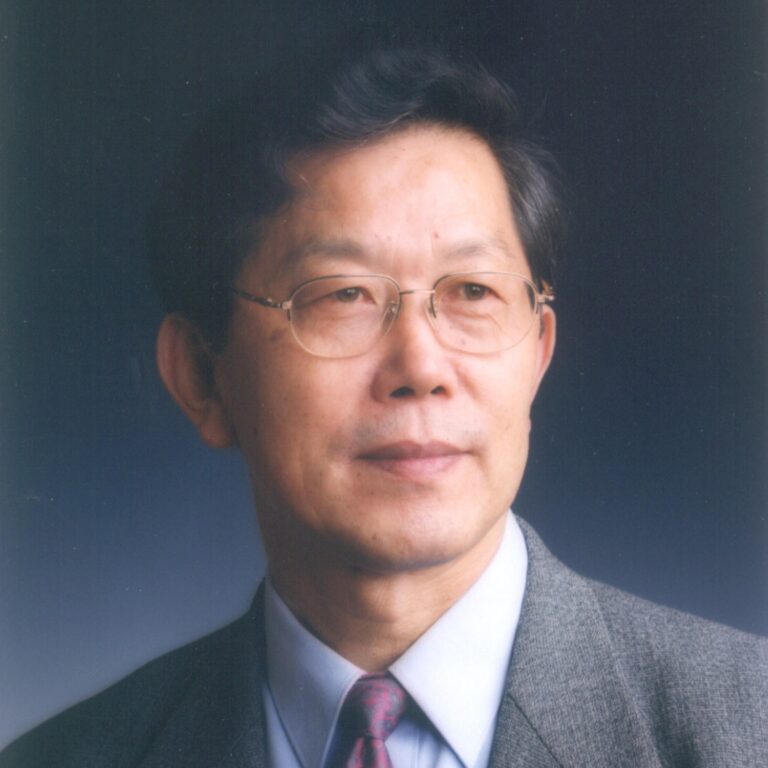
Prof. Qisheng Tang is a member of the governing board of Chinese Academy of Engineering (CAE), vice chairman of Chinese Association for Science and Technology, deputy director of Commission of Science & Technology of Ministry of Agriculture of China, chairman of Shandong Association for Science & Technology, honorable president of CAFS,director emeritus of YSFRI, member of IOC consultative committee on Large Marine Ecosystems, adviser of Center of Chinese Academy of Sciences-Peking University on climate change, and professor on marine fishery and ecology at Yellow Sea Fisheries Research Institute (YSFRI) of Chinese Academy of Fishery Sciences (CAFS).
Prof. Tang is mainly focused on the research field of marine fishery and ecology. He devoted a lot of time to the development and sustainable utilization of living marine resources study. He is the pioneer of marine ecosystem research in China and developed the concept of Large Marine Ecosystems (LMEs).
He participated in the formulation of the Global Ocean Ecosystem Dynamics (GLOBEC) implementation plan and promoted the GLOBEC research in China. He proposed the new concept on stock resources, genetic resources and product resources, as well as Blue Ocean Food Plan and its corresponding development strategy. He advanced the suggestion of aquatic biological resources protection against desertification of aquatic ecology.
The suggestion leads to formed ultimately the first national life resources conservation plan promulgated by the State Council–Program of Action on the Conservation of Living Aquatic Resources of China.
Recently, he brought forward the idea of carbon fishery promoting fishery, particularly aquaculture to develop towards the green direction and low carbon industry.Prof. Tang directed and completed more than 10 national important research projects. Among them, 4 projects are granted the second prize of National Award for Progress in Science and Technology and one for the third prize, and other six projects won provincial and ministerial science and technology awards. He published more than 290 papers and books, and achieved 19 national, provincial and ministerial honorary titles.